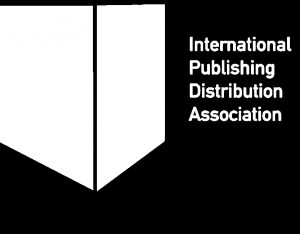Rüdiger Wischenbart is a “resident speaker” in Readmagine since quite a lot of years. His approaches always seek to open the eyes of the audience about the transformations in the publishing business and that is very well rooted on the spirit and goals of Readmagine.
In Readmagine 24 his presentation was an interesting contrast with the previous presentation of the statistics of the European book industry by Enrico Turrin.
You can watch the whole video and see the slides presented by Wischenbart. Here we offer a summary of the interesting pack of reflections shared by him.
Mike Shatzkin, a revered figure in the book consultancy world, wrote in 2023, “The Book Publishing business in which I have spent my working life since the early 1960s is disappearing.” This quote underscores the seismic changes reshaping the book industry, a sentiment echoed by Rüdiger Wischenbart in his Readmagine’s presentation. Wischenbart explored the evolving dynamics of the book market, highlighting the inadequacies of current statistics and the transformative impact of new publishing models.
The gaps in statistics and definitions
Traditional book publishing statistics often fail to capture the full scope of the industry. Wischenbart emphasizes that self-publishing, webtoons, and serialized narratives, especially popular among younger audiences, are significant yet underreported facets of the book market. The challenge lies in defining what constitutes a book in this diverse and evolving landscape.
Self-publishing: from fringe to mainstream
Self-publishing, once considered an oddity, now complements traditional publishing. Authors like Colleen Hoover exemplify this shift. Hoover, whose works dominate sales charts, represents a new breed of authors who blend self-publishing with traditional avenues, controlling their brand and audience engagement. Her success illustrates how the traditional roles of publishers, retailers, and agents are being upended.
New circuits connecting authors and audiences
The book market is increasingly influenced by new circuits that connect authors directly with their audiences. For instance, in 2023, Publishers Weekly reported that 22% of all unit sales in the USA were attributed to Colleen Hoover. This trend is not isolated; similar patterns are observed with other bestselling authors like Sarah J. Maas, whose works significantly boost publishers’ revenues.
Impact of digital and non-traditional formats
Digital platforms and non-traditional formats, such as audiobooks and e-books, are rapidly gaining traction. Companies like Audible and genre-specific imprints created by traditional publishers are capitalizing on these trends. The German market, for instance, shows a decline in traditional book sales, but a robust growth in digital formats and library borrowing.
The evolving role of publishers
Traditional publishers are adapting to the new landscape by embracing digital and self-publishing platforms. Wischenbart highlighted how the traditional linear model of publishing—where the author goes through the publisher to reach the audience—is being replaced by more direct and diversified models. This shift is driven by the changing consumer habits facilitated by smartphones and social media platforms like TikTok.
Changing consumer habits and platforms
Young consumers, in particular, exhibit versatile reading habits, switching between digital and physical formats seamlessly. Platforms like TikTok have become crucial for book marketing, while companies like Tonies target younger audiences with innovative formats. This evolution reflects a broader trend where platforms act as the primary interface between content creators and consumers.
The size and influence of the new book ecosystem
The new book ecosystem, comprising platforms like Amazon’s Kindle Direct Publishing (KDP) and subscription services, represents a significant portion of the market. For example, Amazon’s KDP Select payouts amount to around $600 million annually, indicating substantial growth in the self-publishing sector. Similarly, other platforms like Wattpad and Webtoon report impressive revenues, highlighting their role in the broader book industry.
Financial impact and market dynamics
The financial impact of these platforms is considerable. Estimates suggest Amazon’s Kindle Unlimited generates around $2 billion annually, while platforms like Wattpad-Webtoon and China Literature report revenues in the hundreds of millions. These figures underscore the emergence of a parallel publishing universe that rivals traditional publishers in scale and influence.
Conclusion: A new publishing paradigm
The traditional publishing model is giving way to a more complex and integrated ecosystem where authors and audiences are directly connected. Platforms play a crucial role in this new paradigm, offering multifaceted services that blur the lines between production and distribution. As Wischenbart prepares to release his comprehensive report, «Publishing Beyond Publishers,» (1) it is clear that the book industry is undergoing a profound transformation.
Future outlook
The future of publishing lies in embracing these new models and understanding the diverse ways in which content is created, distributed, and consumed. Personalization and audience engagement are key drivers of this evolution, offering both challenges and opportunities for traditional and new players alike. As the industry continues to evolve, staying informed and adaptable will be crucial for success.
Rüdiger Wischenbart, born in 1956 in Graz, Austria, is the founder of “Content and Consulting” (since 2003), and a writer specialized in culture, cultural industries, the global book markets, innovation in the book industry, literature, media, and communication.
Most recently, he co-founded ReBoot Books, a series of professional debates on the international book business and the Digital Consumer Book Barometer, a market report series with a focus on ebooks, audiobooks, online sales and subscription. Since 2007, he annually updates the Global 50 Ranking of the Publishing Industry, co-authors the Diversity Report series n literary translation in Europe (since 2008, and he coordinates SIDT, a collaborative project for innovation trainings under a Creative Europe grant. A former Head of Communications at the Frankfurt Book Fair and Director of International Affairs at BookExpo America, Wischenbart authored several books on migration and modernization in Central and South East Europe, notably “Canettis Angst” (1994).
(1) For more detailed insights and updates, Wischenbart’s forthcoming report «Publishing Beyond Publishers» will be available by the end of June. Interested parties are encouraged to subscribe to his newsletter or contact him directly.





